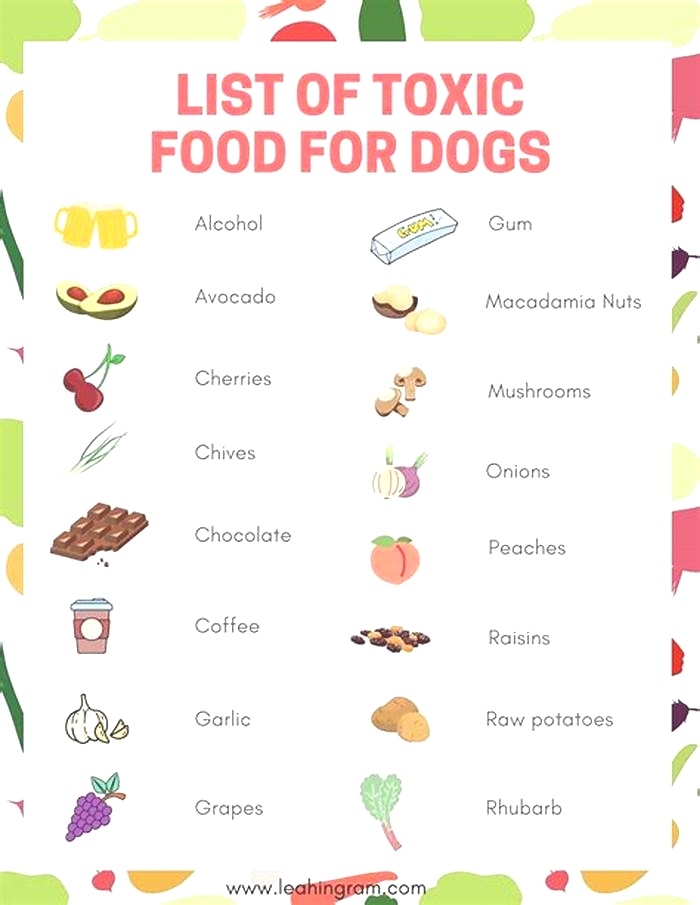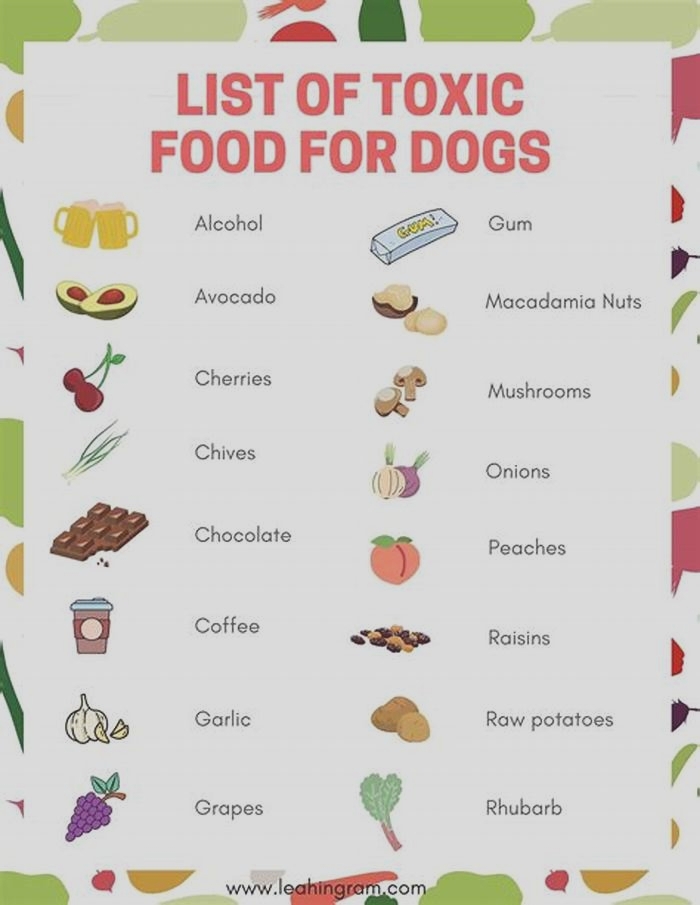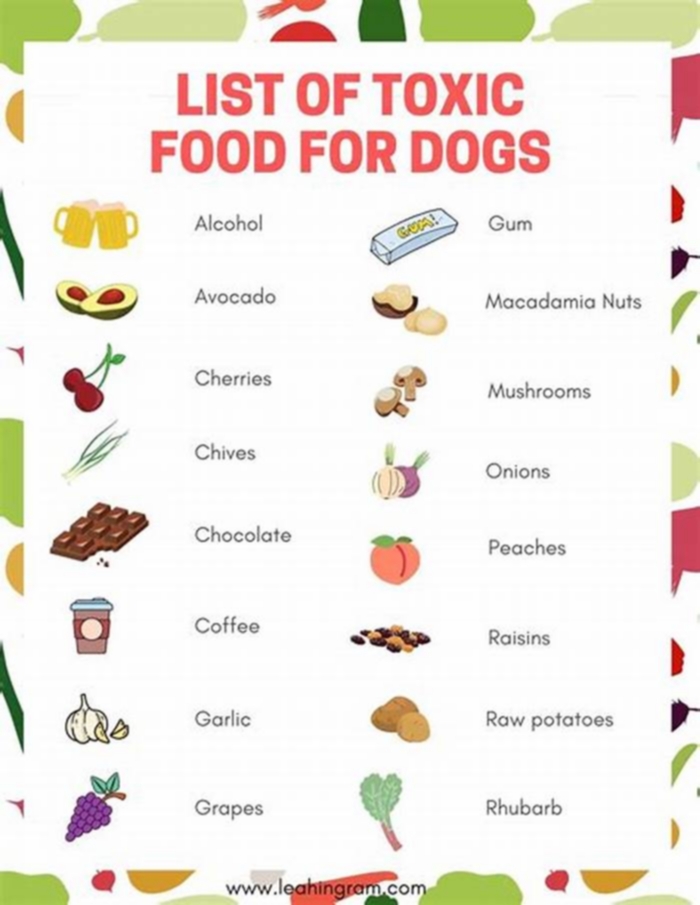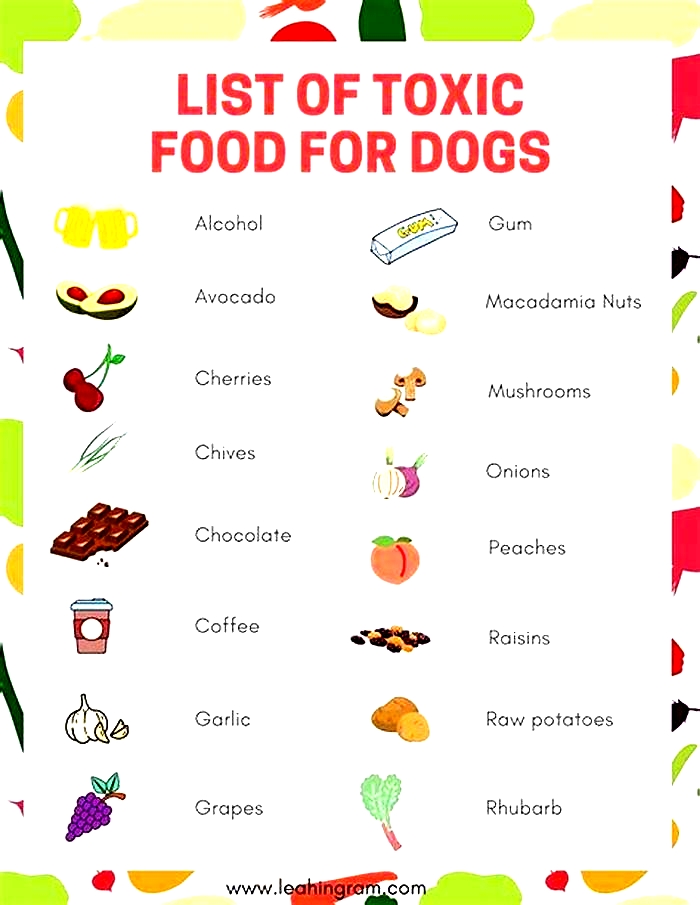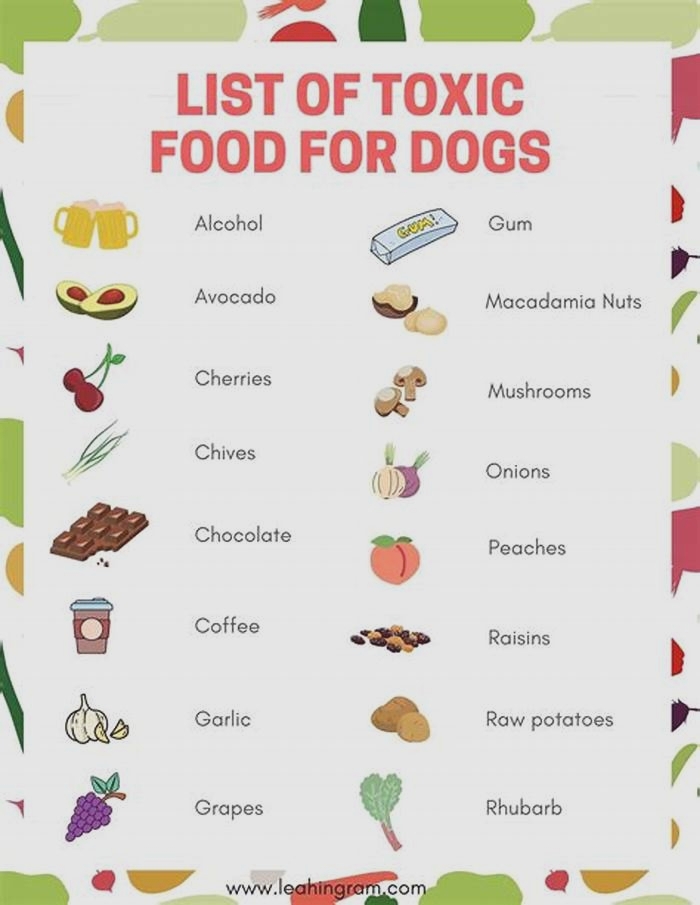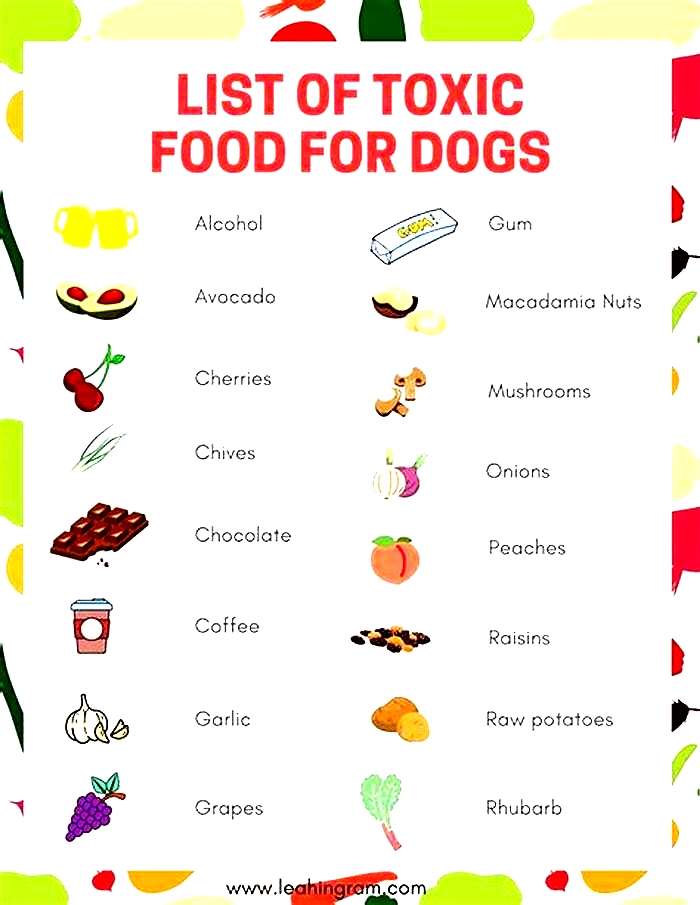what are the most toxic food for dogs

Toxic Food For Dogs
The food we eat is delicious, but some of it can be toxic to our pets.
When your dog or cat enjoys occasional treats from the dinner table, a home-cooked diet, or even gets into food not meant for him or her, please keep in mind that these following foods are not safe. This is even more important during the festive season when family and friends can often think they are doing your dog a favour by feeding him a special treat.
Bread Dough
While cooked bread is generally safe for our pets, uncooked bread dough made with yeast can cause problems. The yeast in the bread dough can make ethanol gas when it ferments in a warm and moist environment, such as the stomach. This ethanol gas can lead to a distended stomach, possible twisting of the stomach (GDV, also known as bloat), or alcohol toxicosis. The effects of alcohol can include stumbling, weakness, blindness, vomiting and loss of consciousness. If your pet eats bread dough, please seek medical attention immediately.
Chocolate
Chocolate is delicious to people and animals alike. Unfortunately, dogs and cats are unable to clear the metabolic products as quickly as humans do, which leads to toxic effects. Chocolate (except for white chocolate) contains theobromine and caffeine. Both of these products can dangerously stimulate the bodys heart and nervous system, leading to irregular heart rhythm, high blood pressure, muscle tremors and possibly seizures. Because the various types of chocolate contain different amounts of theobromine, you should contact a veterinarian immediately to determine if your pet needs emergency treatment.
Macadamia Nuts
Macadamia nuts can affect the nervous system, joints and gastrointestinal tract in dogs. Symptoms may include painful joints, vomiting, weakness, unsteady gait, tremors and depression. Because even a small amount of nuts can cause symptoms, immediate treatment by a veterinarian is recommended.
Grapes and Raisins
Approximately half the number of dogs who eat grapes or raisins develop kidney failure. Unfortunately, the toxic agent in the grapes/raisins has not been identified, and it is unknown why some dogs are affected by the fruit while others are not. Even one grape or raisin has the possibility of affecting the kidneys, so immediate medical attention is recommended for all dogs that may have eaten any. There are limited reports of kidney failure in cats after eating grape/ raisins, but it is uncertain if this is due to decreased toxicity or decreased likelihood of eating the fruit. Because kidney failure can be fatal, hospitalisation for several days and fluid therapy to support the kidneys is usually recommended when grapes/raisins have been eaten.
Mouldy food
Mould on food can produce toxins which affects the nervous system in dogs and cats. Foods most often associated with these toxins include mouldy dairy products, walnuts, peanuts, or grain products including pasta and bread. Access to a compost bin or decaying plant material is also associated with these toxins. Symptoms can be severe and range from mild muscle tremors to hypersalivation, agitation, seizures, overheating and even death. Most patients with this toxicity require hospitalisation and aggressive treatment. Any pet known or suspected to have eaten mouldy food should be brought to a veterinarian for mergency treatment.
Onions and Garlic
Raw or cooked onion and garlic contain compounds which damage red blood cells, leading to anaemia. Cats are more susceptible than dogs. Symptoms may not be visible for several days following ingestion, and can include weakness, lethargy, pale gums, vomiting, diarrhoea, and increased breathing rate or effort. If the anaemia is significant, a blood transfusion may be necessary. Any pet found to have eaten onions or garlic should be brought to a veterinarian for emergency treatment.
Salt
The most common causes of excessive salt ingestion include homemade play dough, paintballs, de-icing salts and sea water. Symptoms associated with salt toxicity include vomiting, diarrhoea, muscle tremors, weakness, difficulty breathing, seizures and loss of consciousness. Patients with salt intoxication require immediate and aggressive medical care
Xylitol
Xylitol is a sugar substitute used in many foods including gum, hard candies, baked goods and toothpaste. Dogs are highly sensitive to this product, and it can rapidly drop blood sugar levels and affect the liver. Clinical signs can include vomiting, weakness, tremors, seizures, collapse, bleeding and jaundice. Effects on blood sugar occur rapidly while liver changes may take 1-3 days to develop. Hospitalisation with close monitoring and aggressive care is recommended for dogs with who have ingested xylitol.
Mushrooms
These can be extremely injurious to pet health and even fatal to dogs. Some kinds are worse than others, so it is best to prevent your dog from coming into contact with mushrooms of any type. Ensure that dogs are not attracted to wild mushrooms either, as these are poisonous to everyone, including humans.
Avocado and Persimmons
Avocados cause fluid accumulation in the lungs and are very toxic to dogs. Every part of them, including fruit, pits, jacket and leaves, are dangerous. The same goes for persimmons.
Tomatoes, Potatoes and Rhubarb
Tomatoes, especially unripe green ones, are toxic and can cause all sorts of problems that can lead to heart failure. Potato jackets are especially bad for dogs, as is the entire rhubarb plant. In fact, some parts of rhubarb are toxic to humans, too.
Nutmeg
This appears in various foods, especially those eaten around the holidays. It can be lethal to dogs. Avoid feeding processed gingerbread cookies, eggnog and other nutmeg-laced products to your canine friend.
Alcohol
While it is something that may happen in movies and on television, dogs should never ingest liquor of any sort in real life. Alcohol causes various behavioural problems (similar to humans) and may cause seizures, cardiac arrest and death, depending on how much alcohol a dog has consumed.
Source: http://www.womansday.com/life/pet-care/a3775/pethealth-101-10-toxic-foods-for-dogs-77184/ Author: E.A. Anne
Written By Dr Mara Hickey DVM Head Emergency & Critical care Service The Sydney University Veterinary Teaching Hospital www.uvths.com.au
Mara has been in the field of emergency and critical care medicine since 1996, first working as a veterinary assistant, and later obtaining certification as a veterinary technician. She graduated as a veterinarian from the University of Wisconsin in 2008 and pursued additional training at a private practice emergency referral hospital as well as at the University of California at Davis. In 2014, she completed a residency in emergency and critical care at a private practice in Los Angeles. She moved to Australia in May 2015 to head the emergency and critical care service.
Dangerous Foods for Dogs
Its only natural for dogs to be curious. But their curiosity can get them into trouble when they getinto areas where you store household items such as medicine and detergents. Many commonhousehold items that you use everyday can be harmful, and sometimes even lethal, to your dog.
This is a list of foods that are harmful to your dog. It is not an exhaustive list. if your dog ingests any of these it may cause vomiting, abdominal painand/or diarrhea. If anything like this were to happen our advice is to take your dog to your vet. As an alternative you can call the Pet Poison Helpline.
- Wild cherry

 Almond
Almond- Apricot
- Balsam Pear
- Japanese Plum
- May cause varied reactions:
- Yeast dough
- Coffee grounds
- Macadamia nuts
- Tomato and potato leaves and stems
- Avocados
- Onions and onion powder
- Grapes
- Raisins
- Chocolate
- Pear and peach kernels
- Mushrooms (if also toxic to humans)
- Rhubarb
- Spinach
- Alcohol
People Foods to Avoid Feeding Your Pets
ASPCA Animal Poison Control Center Phone Number: (888) 426-4435
Our Animal Poison Control Center experts have put together a handy list of the top toxic people foods to avoid feeding your pet. As always, if you suspect your pet has eaten any of the following foods, please note the amount ingested and contact your veterinarian or the ASPCA Animal Poison Control Center at (888) 426-4435.
AlcoholAlcoholic beverages and food products containing alcohol can cause vomiting, diarrhea, decreased coordination, central nervous system depression, difficulty breathing, tremors, abnormal blood acidity, coma and even death. Under no circumstances should your pet be given any alcohol. If you suspect that your pet has ingested alcohol, contact your veterinarian or the ASPCA Animal Poison Control Center immediately.
AvocadoAvocado is primarily a problem for birds, rabbits, donkeys, horses, and ruminants including sheep and goats. The biggest concern is for cardiovascular damage and death in birds and rabbits.Horses, donkeys and ruminants frequently get swollen, edematous head and neck.
Chocolate, Coffee and CaffeineThese products all contain substances called methylxanthines, which are found in cacao seeds, the fruit of the plant used to make coffee, and in the nuts of an extract used in some sodas. When ingested by pets, methylxanthines can cause vomiting and diarrhea, panting, excessive thirst and urination, hyperactivity, abnormal heart rhythm, tremors, seizures and even death. Note that darker chocolate is more dangerous than milk chocolate. White chocolate has the lowest level of methylxanthines, while baking chocolate contains the highest.
CitrusThe stems, leaves, peels, fruit and seeds of citrus plants contain varying amounts of citric acid, essential oils that can cause irritation and possibly even central nervous system depression if ingested in significant amounts. Small doses, such as eating the fruit, are not likely to present problems beyond minor stomach upset.
Coconut and Coconut OilWhen ingested in small amounts, coconut and coconut-based products are not likely to cause serious harm to your pet. The flesh and milk of fresh coconuts do contain oils that may cause stomach upset, loose stools or diarrhea. Because of this, we encourage you to use caution when offering your pets these foods. Coconut water is high in potassium and should not be given to your pet.
Grapes and RaisinsAlthough the toxic substance within grapes and raisins is unknown, these fruits can cause kidney failure. Until more information is known about the toxic substance, it is best to avoid feeding grapes and raisins to dogs.
Macadamia NutsMacadamia nuts can cause weakness, depression, vomiting, tremors and hyperthermia in dogs. Signs usually appear within 12 hours of ingestion and can last approximately 24 to 48 hours.
Milk and DairyBecause pets do not possess significant amounts of lactase (the enzyme that breaks down lactose in milk), milk and other dairy-based products cause them diarrhea or other digestive upset.
NutsNuts, including almonds, pecans, and walnuts, contain high amounts of oils and fats. The fats can cause vomiting and diarrhea, and potentially pancreatitis in pets.
Onions, Garlic, ChivesThese vegetables and herbs can cause gastrointestinal irritation and could lead to red blood cell damage and anemia. Although cats are more susceptible, dogs are also at risk if a large enough amount is consumed.
Raw/Undercooked Meat, Eggs and BonesRaw meat and raw eggs can contain bacteria such as Salmonella and E. coli that can be harmful to pets and humans. Raw eggs contain an enzyme called avidin that decreases the absorption of biotin (a B vitamin), which can lead to skin and coat problems. Feeding your pet raw bones may seem like a natural and healthy option that might occur if your pet lived in the wild. However, this can be very dangerous for a domestic pet, who might choke on bones, or sustain a grave injury should the bone splinter and become lodged in or puncture your pets digestive tract.
Salt and Salty Snack FoodsLarge amounts of salt can produce excessive thirst and urination, or even sodium ion poisoning in pets. Signs that your pet may have eaten too many salty foods include vomiting, diarrhea, depression, tremors, elevated body temperature, seizures and even death. As such, we encourage you to avoid feeding salt-heavy snacks like potato chips, pretzels, and salted popcorn to your pets.
XylitolXylitol is used as a sweetener in many products, including gum, candy, baked goods and toothpaste. It can cause insulin release in most species, which can lead to liver failure. The increase in insulin leads to hypoglycemia (lowered sugar levels). Initial signs of toxicosis include vomiting, lethargy and loss of coordination. Signs can progress to seizures. Elevated liver enzymes and liver failure can be seen within a few days.
Yeast DoughYeast dough can rise and cause gas to accumulate in your pets digestive system. This can be painful and can cause the stomach to bloat, and potentially twist, becoming a life threatening emergency. The yeast produce ethanol as a by-product and a dog ingesting raw bread dough can become drunk (See alcohol).

